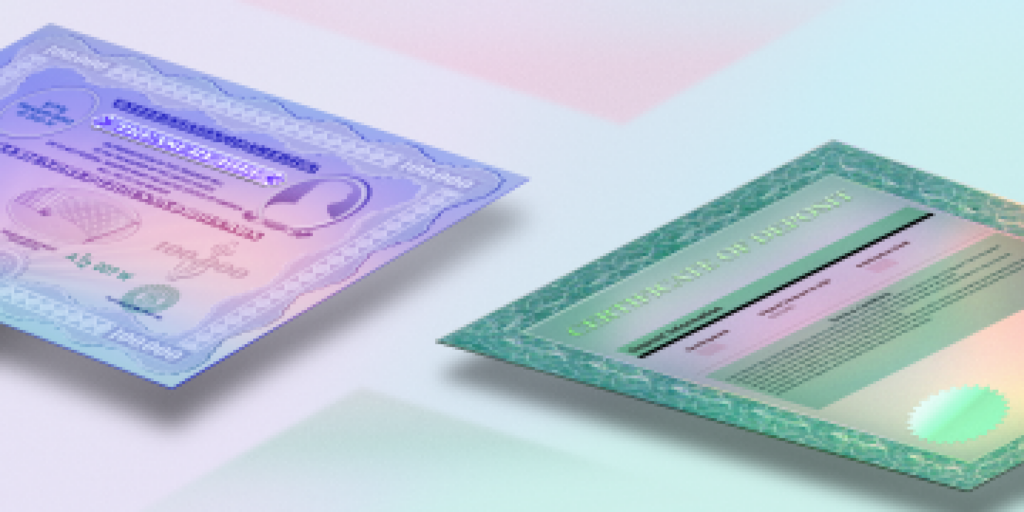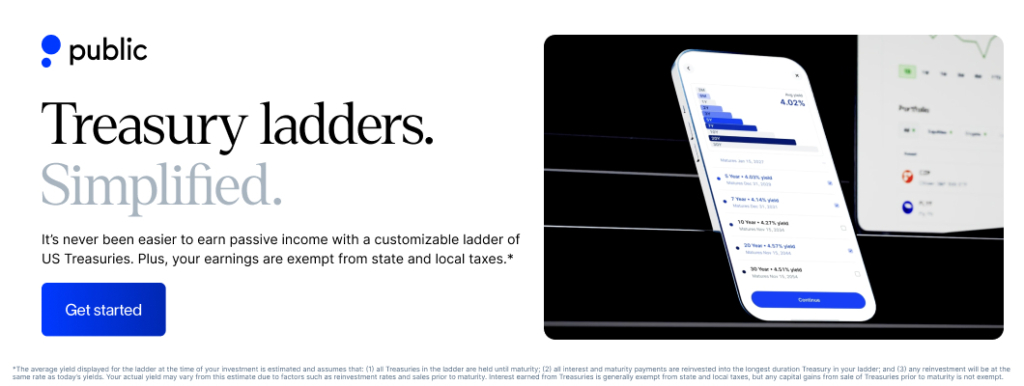When looking for investing, you might be exploring options that offer both stability and predictability. You may have encountered two popular instruments: Treasury Bills (T-Bills) and Certificates of Deposit (CDs). Both are generally considered low-risk investments but they differ in several important ways.
This blog provides a detailed, informational comparison to help you understand how each works so you can better align your financial strategies with your personal circumstances.
What are treasury bills?
Treasury Bills (T-Bills) are short-term debt securities issued by the U.S. Department of the Treasury to fund government operations. When you purchase a T-Bill, you are effectively lending money to the government for a brief period. They are considered as one of the safest investments because the full faith and credit of the U.S. government backs them.
Unlike traditional bonds, T-Bills do not pay periodic interest. Instead, they are sold at a discount to their face value and mature at par value. The difference between the purchase price and the maturity value represents the investor’s earnings.
T-Bills have various maturities, typically:
- 4 weeks
- 8 weeks
- 13 weeks
- 26 weeks
- 52 weeks
Key characteristics of treasury bills
- Issued at a discount – T-Bills are sold at a price lower than their face value. For example, you might buy a $1,000 T-Bill for $980.
- No Interest payments – Instead of regular interest payments, your return is the difference between the purchase price and the face value at maturity.
- Maturity & redemption – At the end of the term, the government pays you the full face value of the T-Bill. In our example, you would receive $1,000 at maturity, earning $20 in interest.
- Liquidity & trading – Investors can sell T-Bills before maturity in the secondary market, where prices fluctuate based on current interest rates.
- Tax benefits – T-Bill interest is exempt from state and local taxes but is subject to federal income tax.
How treasury bills work: A simple example
Meet John, an investor looking for a safe and reliable way to grow his cash. He decides to invest in Treasury bills (T-bills) through his Public Treasury account.
He purchases $4,000 worth of T-bills with a 26-week maturity period at a 4.5% annual yield. Since T-bills are sold at a discount, he pays $3,911.98 upfront instead of the full $4,000.
When the T-bill matures after 26 weeks, John receives the full $4,000, earning $88.02 in interest.
This example illustrates the simplicity of T-bill investing: you buy at a discount, hold until maturity, and receive the full face value—making it a low-risk way to grow your savings.
What are certificates of deposit (CDs)?
A Certificate of Deposit (CD) is a fixed-term deposit offered by banks and credit unions that pays a predetermined interest rate in exchange for locking in your money for a specified period. CDs are considered low-risk investments because they are FDIC-insured (up to $250,000 per depositor, per bank).
Key characteristics of CDs
- Deposit and term selection – You choose a CD term, which can range from a few months to several years. Common terms include 3 months, 6 months, 1 year, 2 years, and 5 years.
- Fixed interest rate – The bank locks in an annual percentage yield (APY) for the entire term. Longer-term CDs generally offer higher rates.
- No access to funds until maturity – Unlike a savings account, withdrawing money before the CD matures may result in an early withdrawal penalty, which can be a portion of your interest earnings or even some principal.
- Maturity and payout – At the end of the term, you receive your original deposit plus the accumulated interest. You can either withdraw the funds or reinvest in a new CD.
How CDs work: A simple example
Joe wants a low-risk way to grow his savings, so he decides to invest in a six-month certificate of deposit (CD).
He chooses a bank and selects a CD with a 4.5% annual percentage yield (APY). He deposits $4,000 into the account. Since CDs earn interest through compounding, after six months, his CD matures, and he receives a total of $4,090—his original $4,000 principal plus $90 in earned interest.
Comparing Treasury Bills and CDs
When deciding between Treasury Bills and CDs, several factors come into play, including liquidity, risk, returns, and accessibility. Understanding these elements may help you determine which instrument aligns best with your financial profile.
1. Liquidity
- Treasury Bills: T-Bills provide high liquidity due to their active secondary market. This means if you need access to your funds before the bill matures, you have the flexibility to sell it, although with potential gains or losses based on current market conditions.
- Certificates of Deposit: CDs require you to lock in your funds for a fixed term. If you withdraw early, you face penalties that might diminish your earnings. This reduced liquidity might be acceptable if you are confident you won’t need immediate access to your money.
2. Risk profile
- Treasury Bills: With T-Bills, your risk is minimal, given their government backing. Their market-driven yield can fluctuate, but the principal is largely protected.
- Certificates of Deposit: CDs are also low-risk, especially considering the FDIC insurance that covers them. However, the risk is slightly different—mainly related to liquidity constraints rather than creditworthiness.
3. Returns
- Treasury Bills: Your return on T-Bills is generated by the discount on the purchase price. Market conditions and broader economic trends may influence these returns.
- Certificates of Deposit: CDs offer a fixed interest rate, ensuring a predictable return if held to maturity. Although these rates are set at the time of purchase, they may be lower compared to the variable returns on T-Bills.
4. Accessibility and convenience
- Treasury Bills: You can purchase T-Bills directly through platforms like TreasuryDirect or via brokers like Public.com, which makes the process straightforward and transparent.
- Certificates of Deposit: CDs are generally available through banks and credit unions. They offer a more traditional banking experience, which may be appealing if you prefer in-person service and established banking relationships.
Let us visualize these differences more clearly with the below comparison table:
Conclusion
Both Treasury Bills (T-Bills) and Certificates of Deposit (CDs) provide low-risk investment opportunities, but the right choice depends on your financial strategy. Whatever you choose, keep your investment objectives in mind, and take time to know the differences between T-bills and certificates of deposit.
If you’re considering investing in T-bills, signing up for a Treasury Account on Public.com makes it easy to get started. You can seamlessly invest in U.S. Treasuries with maturities ranging from 3 months to 30 years, lock in your yield at purchase, and benefit from state and local tax exemptions, helping you keep more of your earnings. Plus, T-bills are highly liquid, so you can access your cash if needed—though selling before maturity may impact your final yield.


